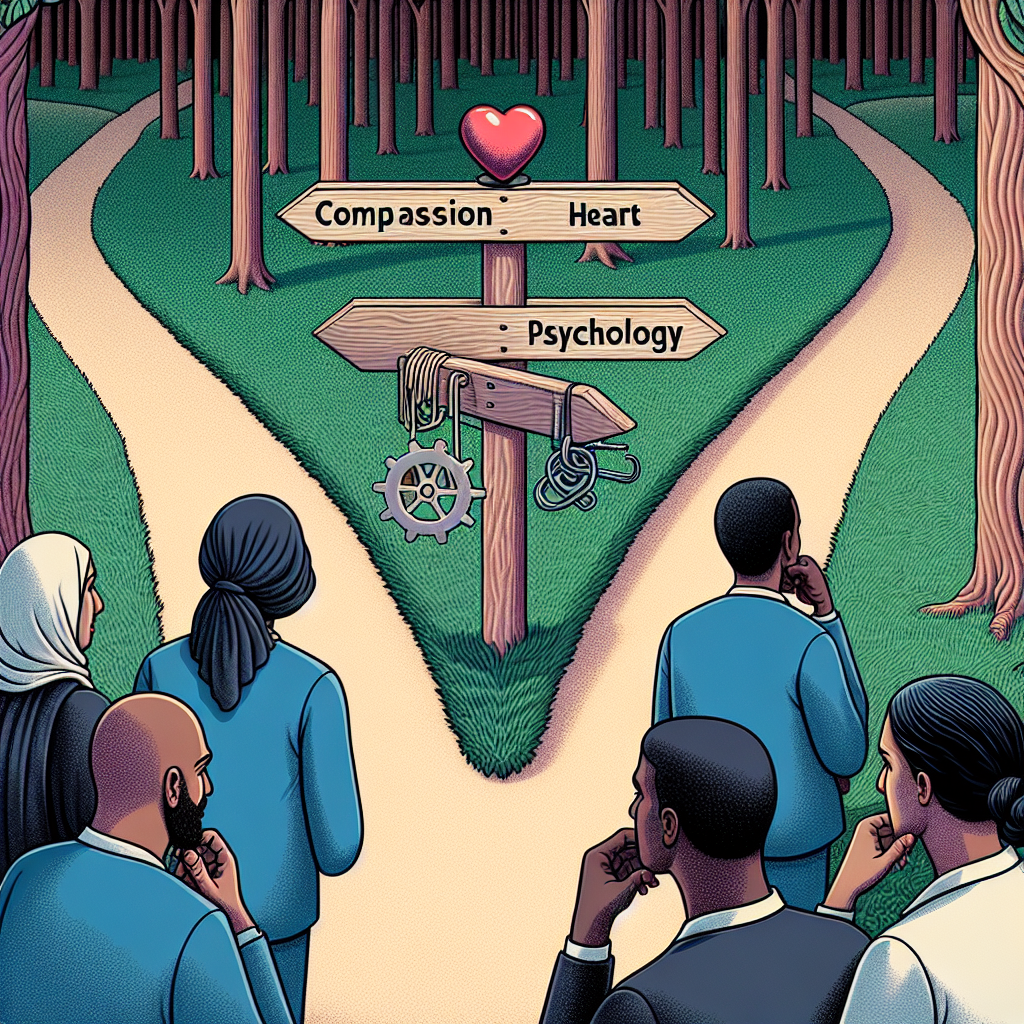
Introduction
In today’s rapidly changing world, career paths can often feel like a vast labyrinth. Among the many routes one might traverse, two paths stand out: social work and psychology. Both fields center on helping individuals navigate their life challenges, yet they take remarkably different approaches. Choosing between these two disciplines can feel overwhelming, yet it can also be the most transformative decision of your life. In this article—The Road Less Traveled: Exploring Career Choices in Social Work vs. Psychology—we will explore the nuances, challenges, and rewards of both careers. Along the way, we’ll share case studies, data, and insights that will guide you to make the choice that resonates with your passion and purpose.
Understanding Social Work
The Essence of Social Work
Social work is rooted in the commitment to social justice, aiming to improve individuals’ lives while considering systemic issues like poverty, discrimination, and inequality. Social workers employ a holistic approach, addressing not only mental health but also socioeconomic factors affecting their clients.
Education and Licensing Requirements
To enter the field, a Bachelor’s in Social Work (BSW) is the minimum requirement, although a Master’s in Social Work (MSW) significantly enhances job prospects and licensure options. Once you obtain your degree, passing a licensing exam is crucial to practice professionally.
Career Paths and Specializations
Social work offers a myriad of paths:
- Clinical Social Work: Focus on therapy and counseling for a range of mental health issues.
- School Social Work: Engage with students, parents, and educational staff to enhance educational outcomes.
- Healthcare Social Work: Assist patients in navigating healthcare systems and accessing necessary resources.
Case Study: Jessica, the Clinical Social Worker
Jessica has spent over five years as a clinical social worker in a community mental health center. Every day, she helps individuals grapple with anxiety, depression, and trauma. One of her recent clients struggled with substance abuse but lacked support from family. By implementing a structured intervention plan and involving community resources, Jessica was able to facilitate rehabilitation, illustrating the profound impact a social worker can have in transforming lives.
Key Challenges in Social Work
Social work is not without its challenges. High caseloads, bureaucratic hurdles, and emotional burnout can pose significant obstacles. However, the resilience and adaptability fostered in this field often equip social workers to tackle these issues effectively.
Understanding Psychology
The Essence of Psychology
Psychology focuses primarily on mental processes and behavior, aiming to understand and treat psychological disorders. Unlike social work, psychology tends to be more research-based, delving into theories of cognition, emotion, and human behavior.
Education and Licensing Requirements
Typically, a bachelor’s degree in psychology serves as a stepping stone, while a doctorate (Ph.D. or Psy.D.) is essential for clinical practice. Psy.D. programs focus more on clinical skills, while Ph.D. programs often emphasize research. Licensing requirements vary by state but generally involve passing a licensing exam after completing supervised hours.
Career Paths and Specializations
Here are notable career paths in psychology:
- Clinical Psychologist: Diagnosing and treating mental health disorders.
- Counseling Psychologist: Focusing on life stresses and developmental issues.
- Industrial-Organizational Psychologist: Applying psychology in business settings.
Case Study: Mark, the Clinical Psychologist
Mark operates a private practice where he employs cognitive behavioral therapy (CBT) to treat clients with conditions like PTSD and anxiety disorders. In one of his sessions, he helped a client recognize unhelpful thought patterns that fueled their anxiety. By challenging these thoughts, the client reported significant improvement in daily functioning, exemplifying the profound effect of psychological interventions.
Key Challenges in Psychology
While rewarding, the field of psychology comes with its hurdles. Client resistance, ongoing professional development, and the emotional toll of dealing with severe issues can weigh heavily. Nevertheless, many psychologists find fulfillment in unraveling the complexities of the human mind and aiding others in their healing journey.
Comparative Analysis: Social Work vs. Psychology
| Aspect | Social Work | Psychology |
|---|---|---|
| Focus | Social systems, justice, community | Mental processes, behavior |
| Education Level | BSW/MSW preferred | Ph.D./Psy.D. required |
| Typical Settings | Non-profits, schools, healthcare | Private practices, hospitals, research |
| Licensing | State licensure (LCSW) | State licensure (LP) |
| Career Outlook | Growing demand for social workers | Competitive but steady demand |
Real-World Impact
Both social workers and psychologists play invaluable roles in society. Social workers often engage with broader community systems, advocating for policy changes and social reform. Conversely, psychologists delve into the intricacies of individual thought processes and therapeutic measures. The choice between the two depends on one’s passion—whether you feel drawn to community activism or individual mental health.
Common Concerns and Misconceptions
1. Do I need a graduate degree to work in either field?
Yes, typically. While there are some entry-level positions in social work available with a bachelor’s degree, most roles—especially in clinical settings—require advanced degrees.
2. Can I practice without a license?
No. Both professions require specific licensure to practice legally.
3. Are job prospects favorable in both fields?
Yes, both fields are experiencing demand due to growing awareness of mental health issues. Social work, in particular, increasingly emphasizes addressing systemic inequities.
4. How stressful are these careers?
Both fields face stressors, including emotional burnout and high workloads. However, personal fulfillment often balances these pressures.
5. Can I transition between the two fields later?
Yes! Many skills overlap, and pursuing further education can facilitate a transition.
Conclusion
Choosing a career path is undeniably complex, particularly within the realms of social work and psychology. Both fields offer unique opportunities to effect positive change in the lives of others, each with its own attributes, challenges, and rewards. Whether you find yourself leaning toward The Road Less Traveled: Exploring Career Choices in Social Work vs. Psychology, the key is to pursue what resonates with your core values and aspirations.
Reflect on what inspires you: Is it advocating for social justice or delving into the human psyche? There’s no wrong path—just the one that leads you closer to your purpose. Take that first step. Your journey awaits.
FAQs
What is the average salary for social workers and psychologists?
- Social workers average about $50,000 annually, while psychologists can earn upwards of $75,000 depending on their specialization.
Is it necessary to have a bachelor’s in social work or psychology to advance?
- While related degrees can provide foundational knowledge, many graduate programs welcome diverse educational backgrounds as long as you meet prerequisite courses.
How important is practical experience in these fields?
- Extremely important. Both social work and psychology require internships or supervised experience to prepare you for licensure.
Can I specialize while pursuing my degree?
- Yes, many programs offer concentrations or electives that allow you to focus on specific areas of interest.
- How can I make the best choice between the two careers?
- Consider your core values, preferred working styles, and the type of impact you wish to have. Speaking to professionals in both fields can also provide clarity.
In making your decision, remember: The journey is just as important as the destination. With an open heart and mind, you’re equipped to navigate this life-altering choice.

















